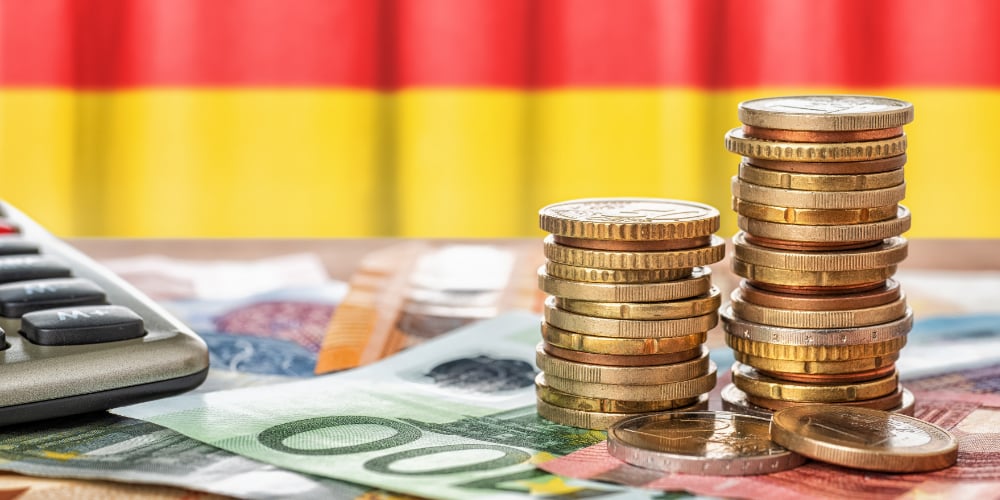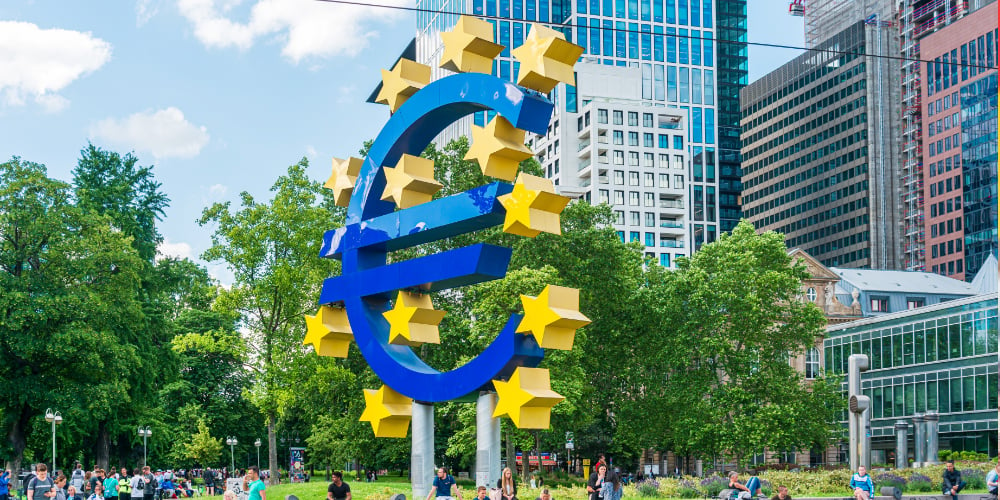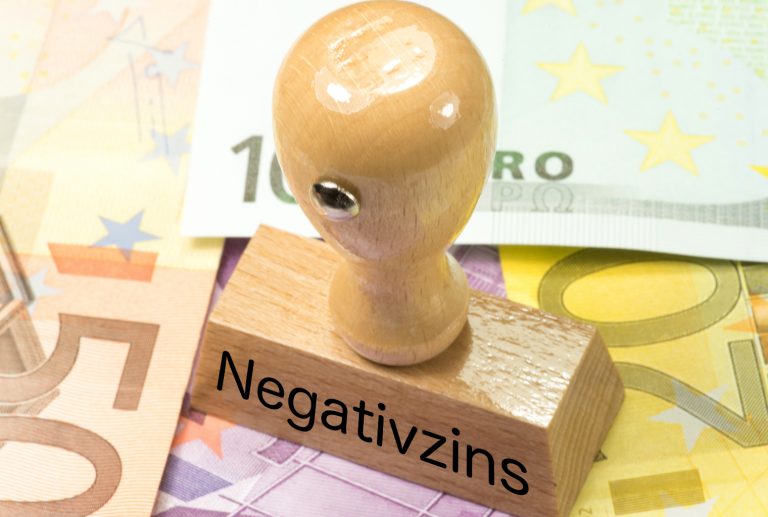A growing number of banks in Germany are charging retail customers negative interest rates, starting with the very first euro deposited into their accounts. At least three German banks are reportedly doing so, with more expected to follow suit in the near future. As the European Central Bank maintains a negative rate policy, more banks say they are finding it necessary to pass on the negative rate burden to their customers.
Also read: Regulatory Roundup – Germany to Let Banks Sell and Store Crypto, Laws Changing in Asia
More Banks Charge Negative Rates From First Euro
German banks are increasingly passing on the burden of negative interest rates to their retail clients from the very first euro deposited into their accounts. While it is not uncommon for banks in Germany to levy negative interest rates on their customers, most of them have refrained from charging retail clients, largely due to concerns of reputational damage. However, a regional bank close to Munich, Volksbank Raiffeisenbank Fuerstenfeldbruck, made headlines recently when it began charging all new clients -0.5% on their deposits from the first euro deposited. Since then, at least two more banks have followed suit.
Another bank, Kreissparkasse Stendal, has a similar policy for clients who have no other relationship with the bank. The bank explains on its website that it is charging a “deposit fee” on balances of 0.01 euro or more. Both Volksbank Raiffeisenbank Fuerstenfeldbruck and Kreissparkasse Stendal “levy the charges on new customers who open a type of savings account that allows for daily, unlimited withdrawals, a popular instrument among German savers,” Bloomberg detailed.

Furthermore, VR Bank Westmünsterland, has reportedly been charging some new customers -0.5% from the first euro since the beginning of the month. According to local media, the bank has become the first financial institution in Germany’s North Rhine-Westphalia state to charge a negative interest rate. The bank said that it is trying to ward off interested parties who have exhausted their options at other banks and just want to park their money cheaply. CEO Wolfgang Baecker opined:
We expect that numerous banks will follow in the near future.
One of the country’s largest cooperative banks, Frankfurter Volksbank, is also reportedly considering charging new customers -0.55% for all deposit amounts, according to news outlet Frankfurter Allgemeine Zeitung. However, this bank has not made a formal announcement about it.
Chain Reaction Led by ECB
The prolonged negative interest rate environment imposed by the European Central Bank (ECB) has forced a number of lenders in Germany to pass on the burden of negative interest rates to their clients. The ECB has kept its deposit rate at -0.5%, making it expensive for banks to park their excess cash there. Last month, Germany’s central bank, the Deutsche Bundesbank, published the results of a survey it conducted on the widespread practice of banks charging negative interest rates throughout the country. The central bank found that “58% of the banks said they were levying negative rates on some corporate deposits and 23% said they were doing the same for retail depositors.”
Isabel Schnabel, a professor at the University of Bonn who was nominated by Germany to join the ECB’s Executive Board, was quoted by Bloomberg as saying: “For now, negative rates are probably a signal to new clients that a bank doesn’t need any additional deposits. I would assume that banks are a lot more cautious with existing customers.”

More German banks are charging accounts with deposits of 100,000 euros ($111,000) or more. Deutsche Bank, Commerzbank, and Berliner Volksbank, one of the largest cooperative banks, are among those already charging wealthy and corporate clients or are in the process of doing so. Deutsche Bank CFO James von Moltke recently revealed that his bank had stepped up its attempts to pass on the negative rate burden to corporate clients. Similarly, Commerzbank CFO Stephan Engels said that his bank had already been approaching wealthy retail customers holding deposits of more than 1 million euros.
“The floodgates are open,” commented Friedrich Heinemann, who heads the department on Corporate Taxation and Public Finance at the ZEW economic research institute in Mannheim. He was quoted by Bloomberg as saying:
We will soon see a chain reaction. Banks that do not follow with negative interest rates would be flooded with liquidity.
“For a long time, wealthy private customers in particular were affected by negative interest rates. But this trend has been broken,” said Oliver Maier, Managing Director of Verivox Finanzvergleich GmbH. “Over the next few weeks and months, we expect more banks to introduce negative interest rates. It will be harder for banks to evade the trend towards negative interest rates, at least when customers start to move deposits on a large scale.”
What do you think of more German banks charging all customers negative interest rates? Let us know in the comments section below.
Disclaimer: This article is for informational purposes only. It is not an offer or solicitation of an offer to buy or sell, or a recommendation, endorsement, or sponsorship of any products, services, or companies. Bitcoin.com does not provide investment, tax, legal, or accounting advice. Neither the company nor the author is responsible, directly or indirectly, for any damage or loss caused or alleged to be caused by or in connection with the use of or reliance on any content, goods or services mentioned in this article.
Images courtesy of Shutterstock.
Did you know you can buy and sell BCH privately using our noncustodial, peer-to-peer Local Bitcoin Cash trading platform? The local.Bitcoin.com marketplace has thousands of participants from all around the world trading BCH right now. And if you need a bitcoin wallet to securely store your coins, you can download one from us here.
The post German Banks Increasingly Charging Retail Clients Negative Interest Rates appeared first on Bitcoin News.














